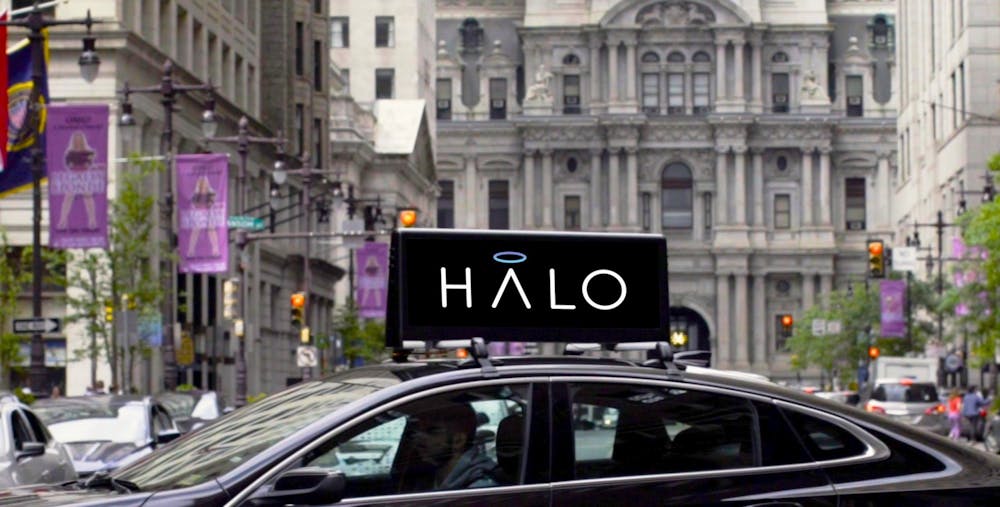
Halo Cars attaches smart LED screens to the top of rideshare vehicles to display “hyper-targeted” ads.
Lyft Inc. has bought Halo Cars, a startup founded by three Penn students and one Penn graduate, that pays drivers to display digital advertisements on top of their vehicles.
Halo Cars attaches smart LED screens to the top of rideshare vehicles to show “hyper-targeted” advertisements that are calibrated to appear based on location, weather, and consumer profiles, according to the company’s website. Prior to Lyft’s purchase in February, Halo recruited full-time Uber and Lyft drivers to attach the company’s lightweight screen to the top of their cars.
2019 College and Wharton graduate Kenan Saleh, Wharton junior Ryanne Fadel, Engineering junior Nabeel Farooqui, and Wharton second-year MBA student Faizan Bhatty founded Halo in fall 2018, according to Forbes. The group observed ineffective advertising around Penn's campus and decided to create “contextual messaging” — advertisements relevant to the client’s current location and current activity.
Bhatty told Forbes that Halo can reduce sexual assault and murder by people pretending to be Uber drivers. Bhatty said Halo can display cars' license plates on the screens atop the cars to help passengers identify the correct driver.
“We saw a few of those articles that came out and figured we had the platform, we have what we need to build this,” Bhatty told Forbes.
Halo won the Launch Award at the Penn Wharton Entrepreneurship Startup Showcase in 2019, earning a $10,000 cash prize for the best "go-to-market strategy and demonstrated traction." The team also won the Summer Venture Award the same year. The $10,000 award financially assists students in place of full-time internships so they can concentrate on working on their ventures full-time over the summer.
The company currently has operations in New York and Chicago, according to The New York Times.
Halo told Forbes that using the screens has led to higher ratings and tips for rideshare drivers. Drivers can also earn up to $400 per month when driving full-time with Halo screens, according to Forbes.
The Daily Pennsylvanian is an independent, student-run newspaper. Please consider making a donation to support the coverage that shapes the University. Your generosity ensures a future of strong journalism at Penn.
Donate




